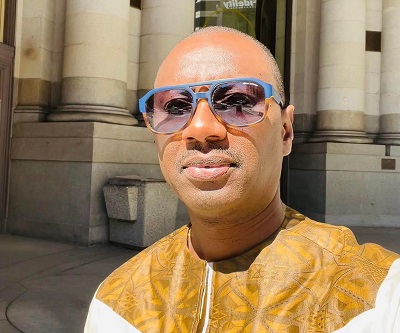Written by: Momodou Ndow
Whenever there is a controversy, Gambians tend to take sides, and the debate quickly becomes partisan. Rather than focusing on facts or substance, many resort to defending, deflecting, and insulting. The truth becomes secondary to loyalty. People create enough noise to bury inconvenient truths.
According to Mustapha Darboe ofThe Republic, during an interview on Kerr Fatou, members of the UDP, NPP, and APRC were all implicated in the looting of Goloh’s assets. To quote Mustapha: “Mole mang kaati jang. Gambiano nengo leh diyata, moe tiling ndingo mang siya. Nee taata foe yalongko sange ntay la hero fanang daa beh kuwol kono lay.”
Yep, I totally agree with Mustapha Darboe. Gambianol mang tiling! Ngee jubadi denge barri, motah dayka bi kaliss coat. With that said, my aim in this piece is to focus on substance, and let the noise pass me by.
The Role of a Commission of Inquiry
What exactly is the function of a Commission of Inquiry?
“A commission of inquiry is a fact-finding body, typically established to investigate matters of public interest or to gather information necessary for policy decisions. Their main job is to conduct thorough investigations, make findings based on evidence, and provide recommendations for action.”
When the Janneh Commission of Inquiry was established in July 2017, Mr. Surahata Janneh and Mrs. Amie Bensouda were appointed as Chairman and Lead Counsel, respectively.
As Chairman, Mr. Janneh was responsible for setting the agenda, moderating discussions, approving materials, prioritizing tasks, communicating decisions, and ensuring the commission reaches a conclusion.
Ms. Bensouda, as Lead Counsel, was tasked with developing investigative strategies, identifying and examining witnesses, presenting evidence, ensuring fairness, advising on legal matters, and contributing to the final report.
The Sale of the Assets: A Legal Question
In the wake of The Republic’s explosive investigative report implicating the Janneh Commission in the sale of Goloh’s assets, a fundamental question arises: If the TRRC as a fact-finding commission (just like the Janneh Commission), was not involved in implementing its recommendations, why was the Janneh Commission involved in disposing of assets? Did they have the legal authority to do so?
Constitutional lawyer Mr. Lamin Darboe argues that the Janneh Commission did not have the legal mandate to sell the assets. According to him, Section 202(2)(D) of the Constitution makes it clear that the Commission’s authority was limited to preserving, not disposing of, those assets.
Here is what Section 202 states:
Functions and powers of 202 Commission:
(1) A Commission of Inquiry shall –
-
(a) make a full and impartial investigation into the matter in respect of which the Commission is established; and
-
(b) furnish in writing a report on the results of the inquiry, including a statement of the reasons leading to the conclusions of the Commission.
(2) A Commission of Inquiry shall have all the powers, rights and privileges of a judge of the High Court at a trial in respect of –
-
(a) enforcing the attendance of witnesses and examining them on oath, affirmation or otherwise;
-
(b) compelling the production of documents;
-
(c) issuing a commission or request for the examination of witnesses abroad;
-
(d) making interim orders.
Regarding his remarks about Section 202 (2)(D): Mr. Darboe emphasizes that interim orders are, by definition, temporary. They are designed to maintain the current “state of affairs” or “prevent harm” until a final decision is reached.
Therefore, the Commission could only issue such orders, not permanently dispose of assets. If this interpretation is correct, and it appears to be both reasonable and constitutionally valid, it raises serious ethical concerns about the actions of the Janneh Commission. Both Mr. Janneh and Ms. Bensouda are seasoned lawyers who must have understood that the Constitution does not grant the Commission the authority to sell any assets.
This leads to an important question: Why did Mrs. Bensouda, as Lead Counsel and legal adviser to the Commission, not caution against selling the assets? Her role was precisely to guide the Commission on legal matters, and if the mandate only allowed preservation through interim orders, then the sale of assets was outside its scope.




